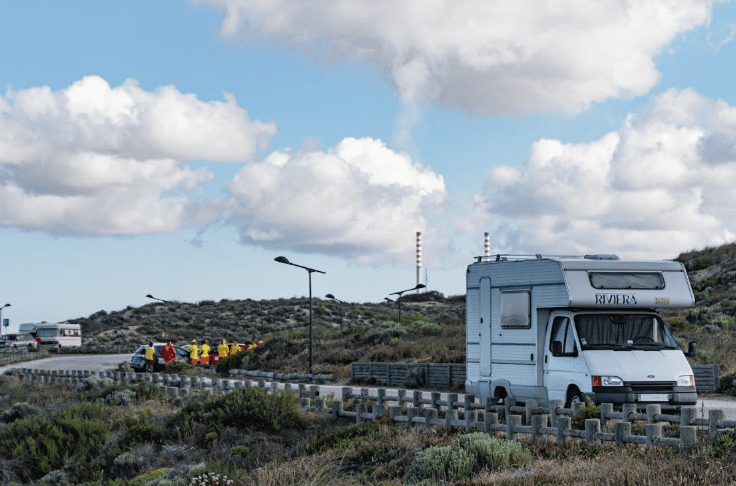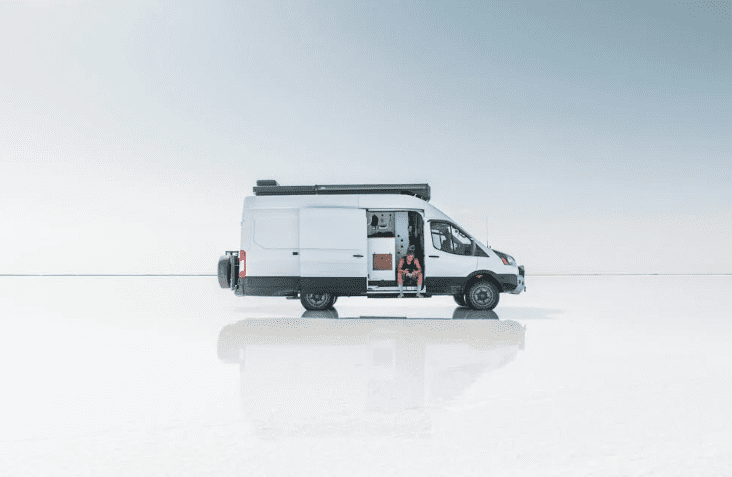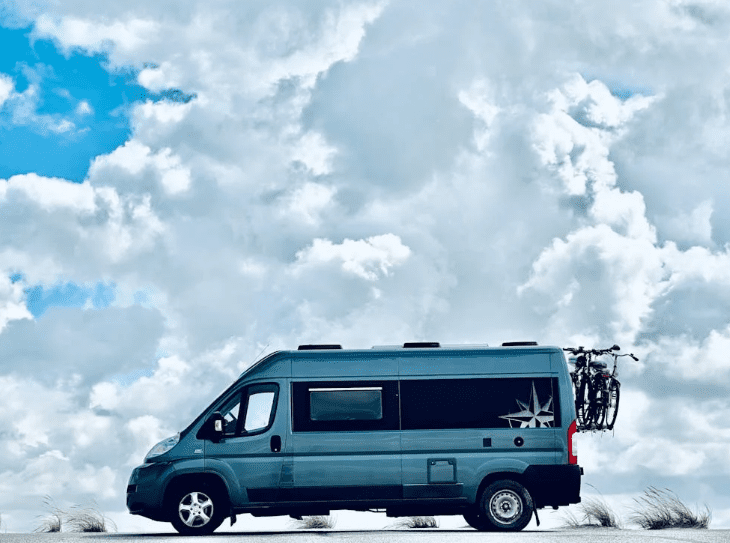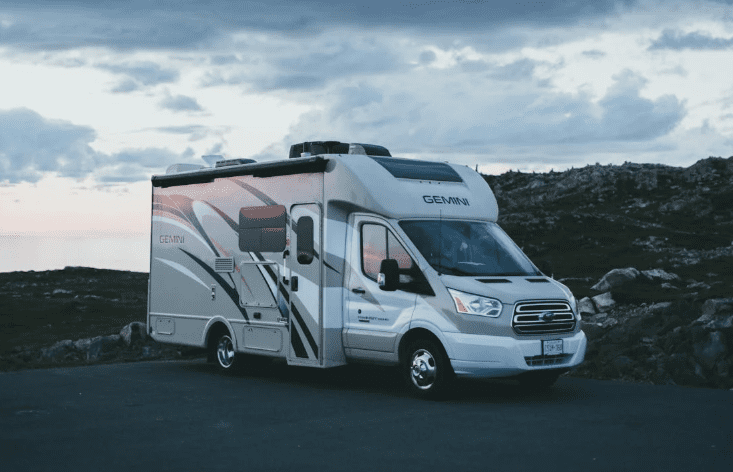If you enjoy caravan holidays but hate the nip of autumn or the howling winds of winter, you’re not alone. In fact, many motorhomers like to pack up their wheels when it gets cold, fearing that freezing nights will make their holidays a test of endurance. However, there’s one item of equipment that can be the game-changer: the diesel heater.
From Australia to Europe and beyond, experienced caravanners have been resorting to diesel space heaters for their reliability, efficiency, and capacity to prevent condensation in their RVs. They’ve become a “comfort passport” of sorts for caravanners who wish to continue their caravan season—or even live on the road year-round.
In this guide, we’ll look at the benefits of diesel heaters, what to consider before installing one, how to keep them running smoothly, and some insider tips from experienced van-lifers.
Why Choose a Diesel Heater?
One of the best reasons caravanners adore a diesel heater for caravan trips is its fuel efficiency. Most models consume between 0.1 and 0.3 liters of fuel an hour, which in turn means using the heater for ten hours on a single liter. Not only is that cost-saving, but it’s a winner when you’re traveling long distances, especially in the outback, where fuel outlets are few and far between.
Diesel heaters are also fabulous in cold weather. Unlike some gas systems, they’re made to operate in sub-zero conditions. If you’re planning to trek through snowy national parks or take an alpine road trip, that reliability could be important.
Another pleasant, peaceful advantage is their dry, level heat. Moisture build-up is a constant struggle in caravans, and overproduction of condensation leads to mold and damp smells. Diesel heaters reduce that by forcing warm, dry air, leaving your interior comfortable and your bedding mold-free and far from clammy.
They’re also startlingly discreet. Small versions can be concealed under sofas or even installed on the exterior, reclaiming valuable living space. Noise is another perk—new models hum gently in the background, especially after they’ve dialed in a running pattern.
Safety isn’t an afterthought. The majority of models come with automatic shut-off in case combustion is interrupted, along with sealed combustion chambers that exclude exhaust gases.
Perhaps the best advantage of a diesel heater is how much freedom it gives you to travel outside of peak summer time. Autumn and spring are less busy, have lower camping fees, and offer many of the most stunning vistas. Winter touring, with adequate warmth, can be enchanting—think snow-covered mountainscapes, bracing early-morning walks, and cozy evenings campfire-side with a book.
By making winter travel comfortable, a diesel heater opens up whole new books of adventure. It’s not just about staying warm—it’s about having an open travel calendar.
Image Source
That being said, let’s discuss what a buyer must know before investing in a diesel heater for caravans.
1. Getting the Installation Right
Prior to installing a diesel heater, you should ensure that the unit is compatible with your caravan’s size and insulation. A small, well-insulated van may be well-served by a 2 kW unit, whereas larger or less-insulated rigs may require the added oomph of a 5 kW unit.
Ventilation is also a key safety consideration. Exhaust pipe should be routed outside, away from windows or air intakes. Protection from road debris and weather can be achieved using corrosion-resistant materials and protective guards.
And while most diesel heater kits come with fitting instructions, it’s best to go with professional fitting, specifically to ensure fuel lines and exhaust systems seal correctly. Either way, a carbon monoxide alarm is a must. It’s inexpensive, easy to fit, and can provide lifesaving peace of mind.
2. Fuel Efficiency and Power Planning
It’s useful to know how much fuel your heater uses, though. A typical 2 kW heater on half power might use some two liters in eight hours. On a week of successive cold nights, that’s around 14 liters—well within the carrying capacity of most jerry cans or auxiliary tanks.
Some caravanners run their heater straight from the main fuel tank of their vehicle. Convenient as this is, it does mean watching very closely to ensure there’s enough fuel for use when driving away. Others install a special small tank, usually mounted discreetly outside or under the chassis, to prevent any chance of draining the main supply.
3. Comfort, Noise, and Altitude Considerations
Noise is a frequent concern for first-timers. While older models may have been clattery, today’s diesel heaters are much quieter. The noisiest aspect is usually the first time they start up, when the fan and fuel pump have to do more work. After the system comes up to operating temperature, though, the noise quiets down to a gentle hum.
Altitude may be a factor, too. In higher-mountain environments, lower oxygen levels can impact combustion efficiency. Some diesel heaters now come equipped with automatic altitude compensation, which adjusts the fuel-air mixture on the fly. Others need to be hand-tuned—a skill worth mastering if you expect to camp above 1,500 meters regularly.
Image Source
4. Keeping Your Heater in Top Shape
Routine upkeep provides a significant performance and lifespan improvement. Operating the heater for a short time during off-season months prevents parts from freezing and enables you to detect any issues before your next outing.
Soot accumulation is a prevalent problem, especially for those who operate their heaters solely on the low setting. The solution? Blow off your heater with a “blast burn” by letting it run on high for a bit—this serves to burn off carbon buildup.
Checking consumable parts like fuel lines, filters, and seals is also necessary. Cracks, blockages, or leaks need to be addressed immediately to maintain performance and safety.
5. Safety Above All
Diesel heaters are very safe when installed and maintained properly. The key is ensuring a working exhaust, correct ventilation, and reliable smoke and carbon monoxide alarms — essential equipment, not optional extras. Even with expert installation, regular checks keep your heater performing safely for years. Making safety part of your routine is the best way to enjoy warmth and peace of mind.
Image Source
Conclusion
Diesel heaters aren’t the most expensive addition to your caravan, but they soon become the most prized by many travellers. Having low operating expenses, consistent performance in the cold, and the means to keep condensation under control, they turn winter travel into a joy rather than an endurance test.
Whether you install one yourself or hire someone to do it, the keys to success are always the same: size it correctly, install it properly, clean it frequently, and always keep safety devices on hand. Get that right, and you’ll wonder how you ever rode a bike without one.






































